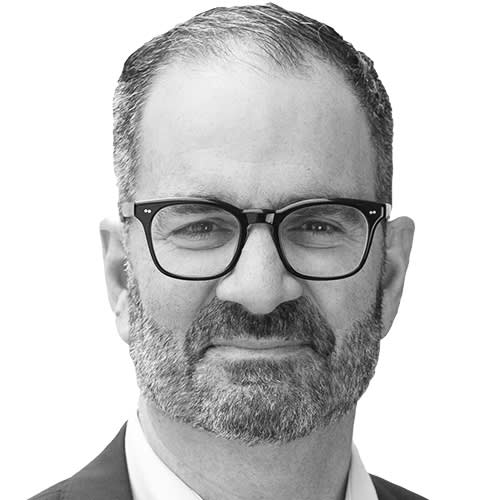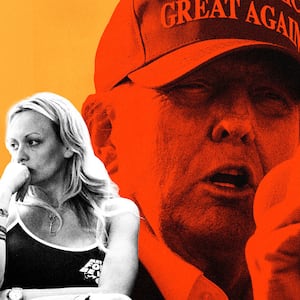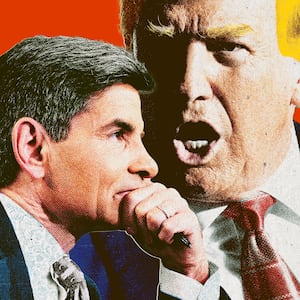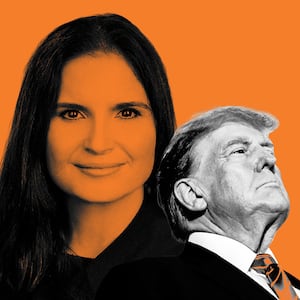Revelations that the Department of Justice recently disclosed a vast trove of documents to Donald Trump’s defense team in the Stormy Daniels hush-money prosecution in New York made headlines, because the long-awaited trial was delayed for at least several weeks. This delay dismayed many who want to see the former president face some kind of legal accountability for his actions that took place before, during, and after his presidency.
Other developments in the case have not garnered as much attention, but likely have more sweeping ramifications for the case, which will still probably start some time before the end of April. What is more, Trump’s team will have to contend with a host of very adverse rulings as the trial unfolds in the courtroom. And both should give Trump and his lawyers great pause.
Earlier this week, the judge presiding over the case, New York Supreme Court Justice Juan M. Merchan, made two significant rulings.
The first of these decisions allows a number of witnesses to testify in the case, including Trump’s former fixer Michael Cohen; former American Media CEO David Pecker; Dina Sajudin, a former Trump Tower doorman; and Karen McDougal, another individual who is alleged to have received similar payments to Daniels, also to cover up an alleged affair with the former president. Their testimony will cover whether the alleged actions related to Stormy Daniels were part of a larger scheme to hide just these sorts of hush-money payments.
But it’s the second ruling that might be even more consequential.
Justice Merchan swatted back one of the Trump team’s main defenses. There has been a lot of speculation that the former president might claim that he acted on the “advice of counsel” and thus the prosecution could not establish that Trump had the appropriate culpable intent. Based on that defense, the argument would go, he believed his actions were legal because someone who should know better—his lawyer—told him so.
Now, normally, a defendant might be able to argue that they were acting on the advice of counsel and because of that, the prosecution could not establish that the defendant had the requisite culpable state of mind when they engaged in the allegedly illegal conduct.
Again, normally, this can serve as a valuable defense. A lawyer is allowed, even expected, to counsel a client about what it would take to comply with the law and the consequences of breaking the law. If a client reasonably relied on the good faith advice of counsel on how to comply with the law, the client might try to evade criminal liability for precisely that reason.
At the same time, a lawyer cannot provide advice to the client as to how to break the law and get away with it. Such communications would not be protected from attorney-client privilege because of what is known as the crime-fraud exception: no attorney-client privilege attaches to any communications that are in furtherance of a crime or fraud.
What that means is that the communications allegedly in furtherance of that crime or fraud could come into evidence. The Trump team, and likely Trump himself, is fully aware of this conundrum because lawyers like John C. Eastman—who had a hand in the events of Jan. 6—have had to turn over otherwise privileged communications after a federal judge in California found that those communications were more likely than not in furtherance of a crime.
The problem with raising the advice-of-counsel defense has less to do with the crime-fraud exception, however, although its practical effect is very similar. If Trump were to raise that defense, the advice he may have received would have had to come into evidence. In other words, information that would normally be protected by the attorney-client privilege would lose its evidentiary shield.
Instead, Trump’s team tried a different approach: they wanted to get all the benefits of the defense without actually raising the defense and waiving attorney-client privilege. In other words, they wanted to have their proverbial cake and eat it too.
The lawyers argued that because there was a lawyer in the room (or, as they phrased it, there was the “presence of counsel”) during certain conversations about how to handle the Stormy Daniels matter (and possibly others), Trump could argue that he should be allowed to say that the guidance he received in the room where it happened should absolve him from culpability. With a lawyer in the room, the advice just had to be legal!
Well, Justice Merchan didn’t buy it, refusing to endorse the Trump team’s tactic. He found that to “allow said defense in this matter would effectively permit Defendant to invoke the defense he has declared he will not rely on,” that is, the formal defense of counsel, “without the concomitant obligations that come with it.” He continued that such a result “would undoubtedly confuse and mislead the jury,” and the court would not “endorse such a tactic.”
While the hush-money prosecution may have faced a temporary setback, these recent rulings likely mean the case is not just on track, but also headed full-steam to trial in the near future.
The outcome is by no means certain, but the efforts to muddy the waters with novel defenses or to exclude the testimony of certain witnesses have failed. That means that District Attorney Alvin Bragg will have a stronger hand when the case ultimately does go to trial.








